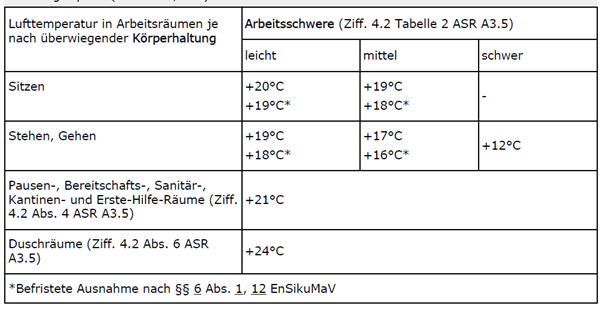Information from the Energy Crisis Team
There is currently a significant amount of uncertainty on the world’s energy markets due to the sanctions placed on Russia by the EU and its allies as a result of Russia’s war of aggression in Ukraine, which could also affect the provision of energy in Germany. The Energy Crisis Team was created to prepare the University for possible heating or electricity shortages. This page provides information about the Crisis Team’s work for the University’s students and members of staff.
The Energy Crisis Team decided the following on 10 November 2022:
1. A handout for students will be produced within three weeks.
2. All institutes and organisational units are asked to carry out drills for the emergency plans this year.
Energy and Gas Crisis FAQs

Short answer: As a general rule, 19°C in offices and meeting rooms.
The Technische Regeln für Arbeitsstätten - ASR(Technical Regulations for the Workplace), ASR A3.5 Room Temperature, defines provisions for work rooms, break rooms, on-call rooms, sanitary facilities, canteens, and first-aid rooms.
ASR A3.5 determines minimum values that must be provided in rooms at the workplace (No. 4.2(2) and (4-6) ASR A3.5 in combination with table 1).
Up until 28 February 2023, the Ordinance for Securing the Provision of Energy via Short-Term Effective Measures (EnSikuMaV) provides for certain exceptions to these rules and lowers the minimum temperatures by one degree for work rooms in which non-strenuous and moderately strenuous work is performed (§§ 6, 12 EnSikuMaV). If, due to low air temperatures, the health of employees is particularly at risk, exceptions to the maximum temperatures are possible, if other solutions, such as an extension of the working from home regulations are not possible or sufficient for protecting the health of these persons.
As these temperature limits only apply whilst the rooms are in use (No. 4.2(1) ASR A3.5), the temperature can be dropped to save energy, especially at night and at the weekend. However, it must be guaranteed that the corresponding air temperatures are attained in work rooms during office hours.
Short answer: As a general rule of principle, no.
The room temperatures may not be held below the stipulated minimum temperatures due to cost-related reasons.
Other measures can and must be taken only if it is not possible to attain the temperatures with technical means (e.g. loss of gas supply). If the minimum values for work rooms (see question 1) cannot be attained, even using all available technical means, protection against temperatures that are too low must be ensured by further measures in the following order:
- technical measures at the workplace (e.g. radiant heaters, heating mats),
- organisational measures (e.g. times for warming up) or
- measures taken by individuals (e.g. suitable clothing).
Short answer: As a general rule of principle, no.
Energy used to heat water can and should be saved. Usually, cold water is sufficient for washing hands in WCs. Warm water should only be provided if required. This can be the case, for example, if handling food.
Generally, employers are not obliged to provide sanitary facilities in which employees can wash and/or shower. Therefore, they could be closed to save energy and resources. They must only be provided if required for the type of work or health-related reasons.
As a general rule of principle, work rooms must receive sufficient daylight. Artificial lighting is required if the amount of daylight is insufficient (No. 5.1 ASR A3.4). This depends on the individual workstation and the person working there. For example, additional lighting might be required if the employee has poor eyesight. In order to save the required amount of artificial lighting, curtains, shutters etc. should not be used unless they are required for non-reflective work. Access routes (e.g. corridors) must (only) be lit whilst in use.
Minimum values for the respective illumination level and a colour rendering index apply (No. 5.2(1, 3-7), No. 5.4 ASR A3.4 in combination with Appendix 1).
Special regulations apply, for example, for the artificial lighting required for safety purposes for the performance of work tasks, at workstations, in work rooms and areas if the general lighting fails, and for the lighting of emergency escape routes and emergency exits (No. 4(8), No. 8.4(3), No. 9f. ASR A2.3). The provision of this kind of lighting must be possible at all times.
Short answer: As a general rule of principle, no.
Members of staff cannot refuse to perform their work just because the workplace is no longer heated or cooled as previously. You are also not able to work from home without permission from the employer.
You are only entitled to refuse the performance of your tasks if violations of health and safety regulations have reached a certain level of severity. Slight deviations in the observance of minimum temperatures for work rooms might not be a sufficient reason.
Short answer: In general, yes.
If required for reasons related to the gas crisis, employers can force their employees to work from home.
If there an interruption in the gas supply, it is possible that the employer will no longer be able to provide employees with a suitable workplace pursuant to § 3a I (1) & (2) ArbStättV in combination with ASR A3.5 No. 4.2. The employee is then obliged in accordance with §§ 241 II, 242 BGB to consent to a working from home agreement drawn up by the employer - at least for the heating period.
Even if the employer is only taking this measure to save gas (and thus costs), as a general rule of principle, in accordance with §§ 241 II, 242 BGB, the employer is obliged to consent to a working from home agreement.
Irrespective of these underlying legal regulations, the University of Greifswald is not planning to make employees work from home solely due to cost-related reasons!
Yes, when working from home, employees must fulfil the full scope of their tasks as long as it is possible depending on the type of work and the available infrastructure at home. The obligation to perform work tasks only ceases to apply to those parts that the employee is unable to fulfil from home, or in full if the tasks cannot be performed at all. Please refer to question 10 with regard to the ‘risk of impairment to perform work tasks’.
As a general rule of principle, if there is a state-wide blackout, the employer carries the ‘risk of impairment to perform work tasks’. If, for example, work (even from home) is impossible due to a power cut, the employer is obliged to continue the payment of salaries. The employer is also obliged to carry on paying salaries in cases of ‘force majeure’, such as natural disasters, extreme weather, or other disasters.
In return, however, employees are obliged, wherever possible, to perform their duties at other times, in order to reduce the consequences of the employer’s adoption of risk to a minimum.
Even if a state-wide power cut occurs, employees must first clarify whether their work can be performed by other means (without the use of energy). A general non-performance of work tasks is not permitted.
The employer can send employees home, if it is no longer possible for them to provide a workplace that corresponds to the health and safety regulations due to an interruption in the gas or electricity supply. Please refer to question 8 with regard to the scope of work tasks required from those working from home.
A difference has to be made between employees who have chosen to work from home based mainly on their own interests, for example, if working from home was only one voluntary option provided by the employer, or if working from home was only agreed for a few days per month, or whether working from home was introduced as a result of the gas crisis and in order to move the largest possible amount of work normally performed at the workplace to employees’ homes.
If the latter applies, the employer must bear the economic risk of the heating costs. However, employees are responsible for pursuing their own interests. They must therefore approach the employer and demand an adjustment to the contract (this does not occur by operation of law) or assert a claim for reimbursement of expenses and, if necessary, sue the employer for payment.
Currently, there are no plans to change the existing normal work times/core working hours. Due to the valid Arbeitszeitverordnung - AZVO M-V (Work Hours Ordinance) that applies to the university’s civil servants, in particular § 9(3), changes to the core working hours would not be possible without further ado and therefore these changes are not being considered for the other employees either. Changes to the normal work times are imaginable, but not planned.
As owner of the devices, the University is entitled to ban the use of individual devices, unless specific legal provisions state otherwise for certain circumstances. For example, the Technical Regulations for the Workplace (ASR 4.2) define the required equipment in break rooms.
As defined by health and safety regulations, the use of privately owned (heating) devices that have been brought to the workplace is illicit without a preceding technical check and approval, irrespective of the current situation. In accordance with § 14 BetrSichV (Betriebssicherheitsverordnung (Safety at the Workplace Ordinance) [de] and the DGUV Regulation 3 (Deutsche Gesetzliche Unfallversicherung (German statutory accident insurance)), before a privately owned electronic device is used for the first time, it has to be checked by, or in the presence of an electrician.
Members of the Crisis Team
Prof. Dr. Volker Beckmann, Dean Faculty of Law and Economics
Prof. Dr. Karlhans Endlich, Dean University Medicine Greifswald
Prof. Dr. Gerald Kerth, Dean of the Faculty of Mathematics and Natural Sciences
Dorthe Hartmann, Pro-Rector
Hennis Herbst, Pro-Rector
Prof. Dr. Theresa Heyd, Dean Faculty of Arts and Humanities
Dr. Juliane Huwe, Acting Registrar, Head of Administration and Finance
Thomas Jenssen, Manager of the Office of the Rectorate
Prof. Dr. Thomas Kuhn, Dean of the Faculty of Theology
Prof. Dr. Konstanze Marx, Pro-Rector
Gunnar Guse, Representative from the General Staff Council
Jan Meßerschmidt, University Communications
Prof. Dr. Katharina Riedel, Rector
Prof. Dr. Ralf Schneider, Pro-Rector
Ruth Terodde, Central Gender Equality Officer
Dr. Peter Rief, Head of the Planning and Facility Management Division
Lukas Voigt, Chairperson of the Students' Union (AStA)
Guests: Dr. Ulrich Hasse (Hazardous Materials Officer at the Institute of Biochemistry), Ralf Kolbe, Dipl.-Verw. (Health and Safety Officer), Dr. Thilo Habel (Head of the Kustodie - University Collections), a representative from the University Library and, if required, further experts
Contact
If you have any questions or suggestions, please contact us via energiekrisenstabuni-greifswaldde.


